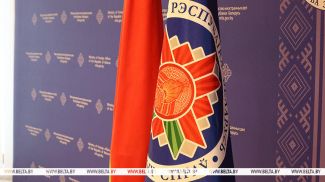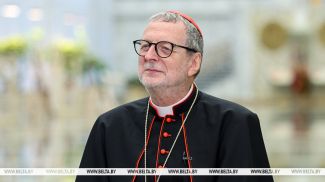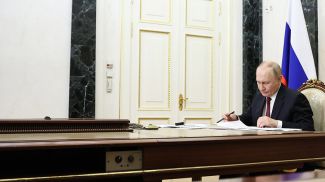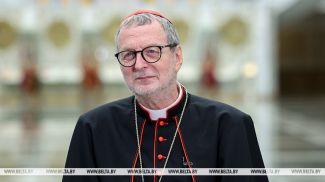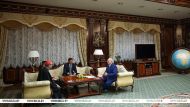MINSK, 4 December (BelTA) – The policy of sanctions is counterproductive and has no future, Belarusian Minister of Foreign Affairs Vladimir Makei said during an online meeting of the OSCE Ministerial Council on 3 December, BelTA has learned.
“The coronavirus pandemic has taken the world by surprise, affecting all areas of life. Computer screens have replaced face-to-face communication that is so important in diplomacy. In addition to that, we see barriers created by bloc thinking, geopolitical ambitions and unwillingness to take into account each other's interests. COVID-19 has exacerbated existing difficulties within and between the OSCE participating states. A serious deficit of trust remains, which undermines the foundations of cooperation in all three security dimensions and weakens our organization,” Vladimir Makei said.
The minister drew attention to the fact that arms control and disarmament mechanisms are falling apart, becoming hostages of mutual claims, mistrust and determination to reap unilateral benefits in the military sphere, as was the case with the Treaty on the Elimination of Intermediate-Range and Shorter-Range Missiles. Some of these mechanisms are becoming less effective, as is happening now with the Treaty on Open Skies following the recent US withdrawal.
Vladimir Makei is convinced that these challenges prompt to go back to basics. In his opinion, an important lesson learned from the Helsinki Process, which turns 45 this year, is that, despite differences in approaches, it is still possible to achieve compromises and find win-win solutions due to political will and commitment to dialogue.
“This year we have witnessed how one of the key Helsinki principles - the sovereign equality of states and respect for the rights inherent in sovereignty - was forgotten or deliberately swept under the carpet. Instead, outdated and ‘rusty' mechanisms are brought back to life, and all reasoning remains unheard,” Vladimir Makei said.




